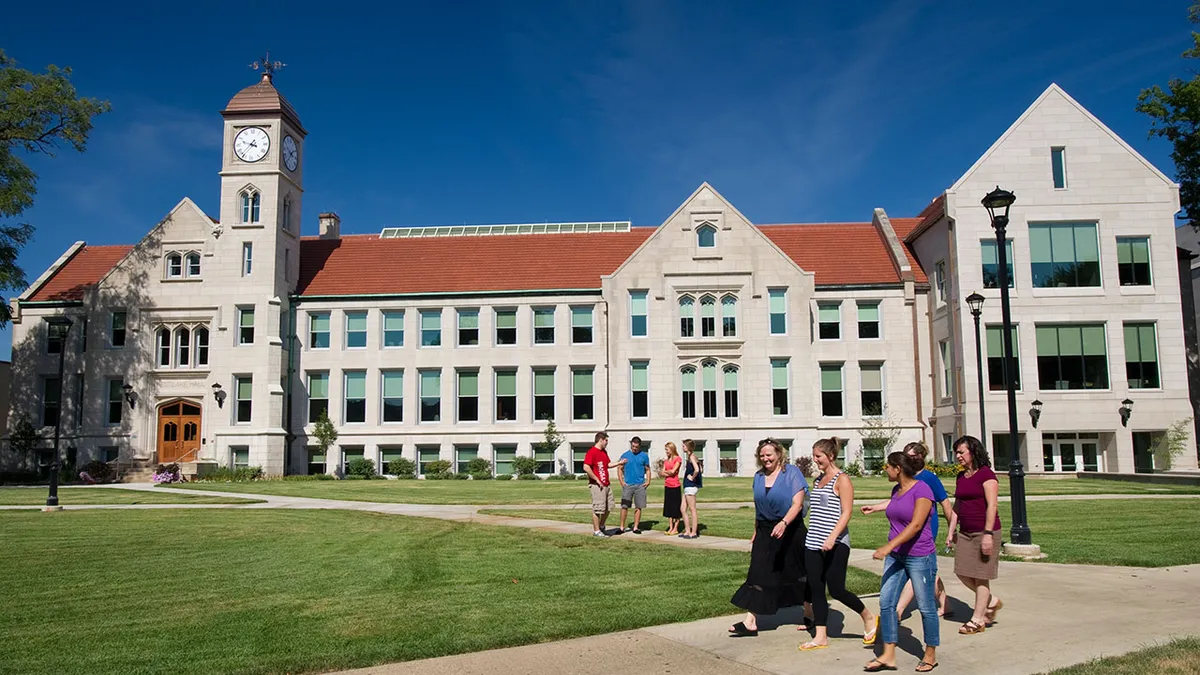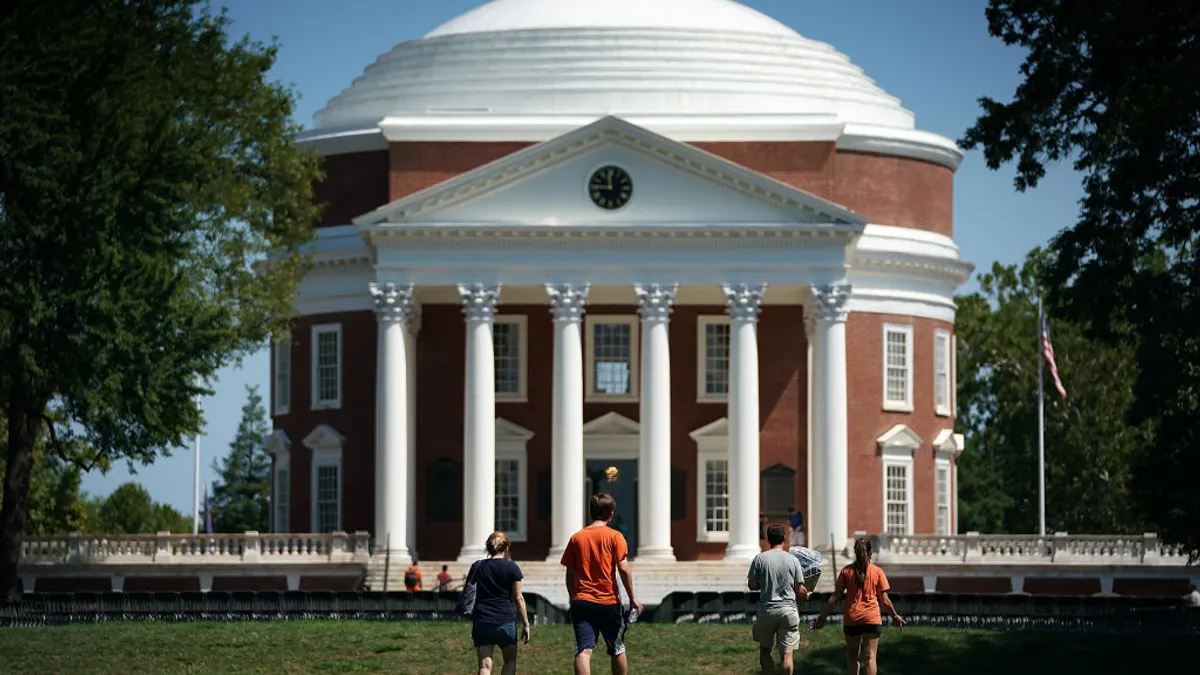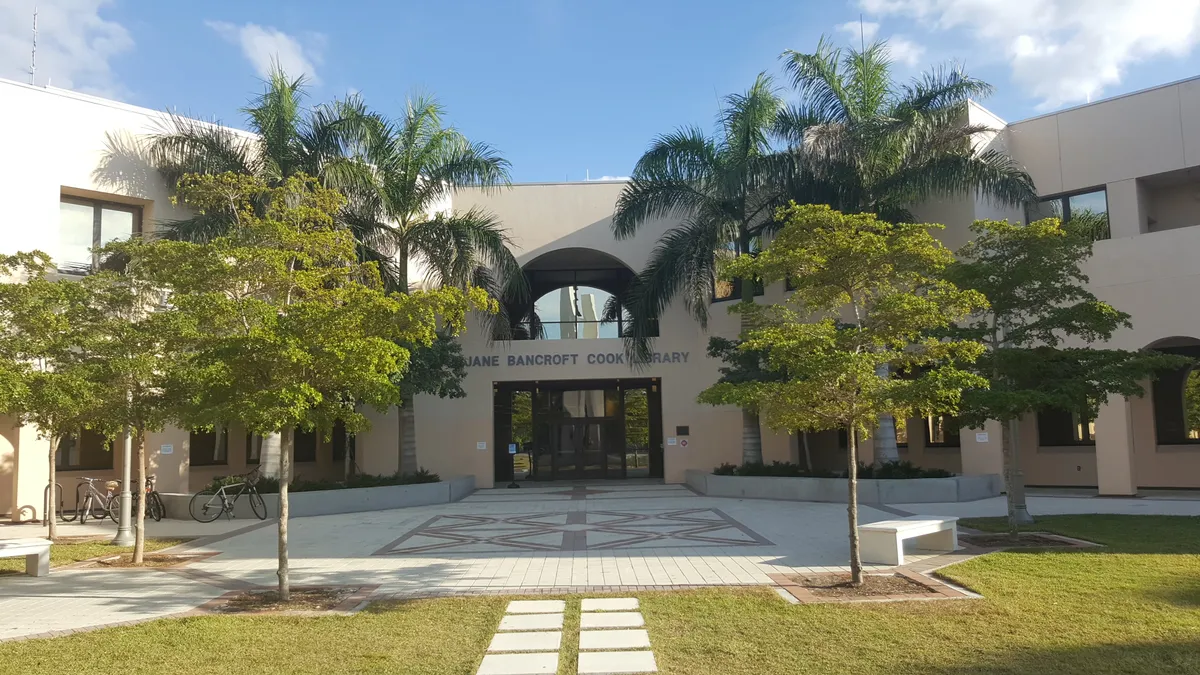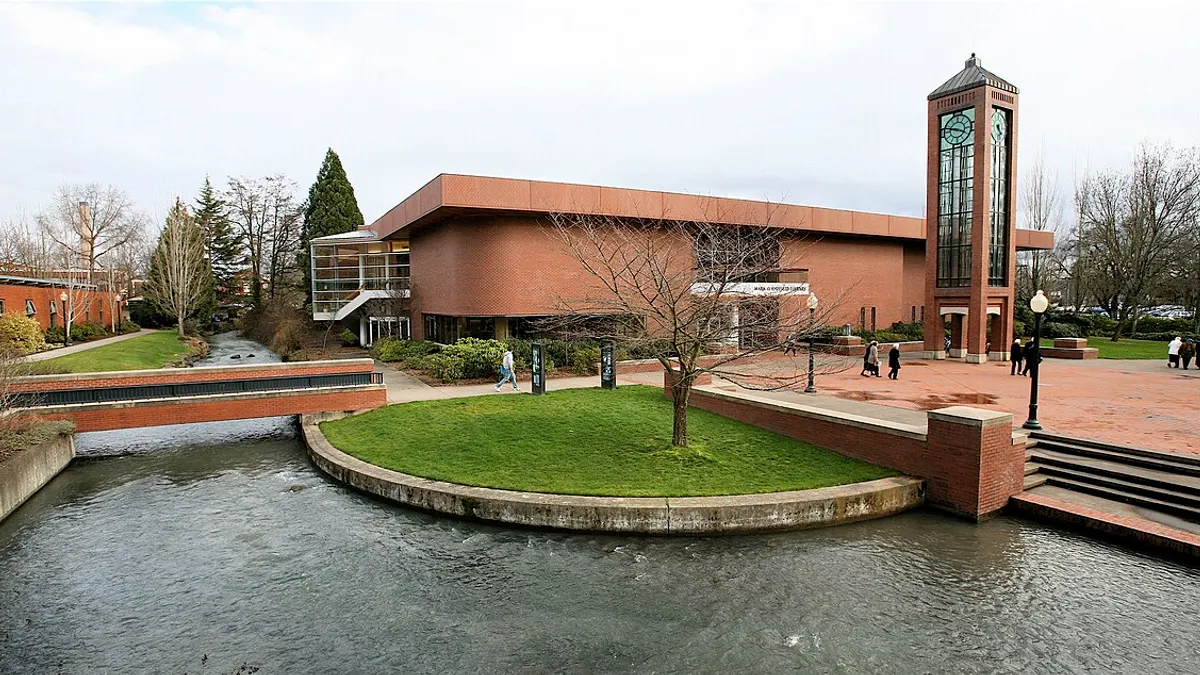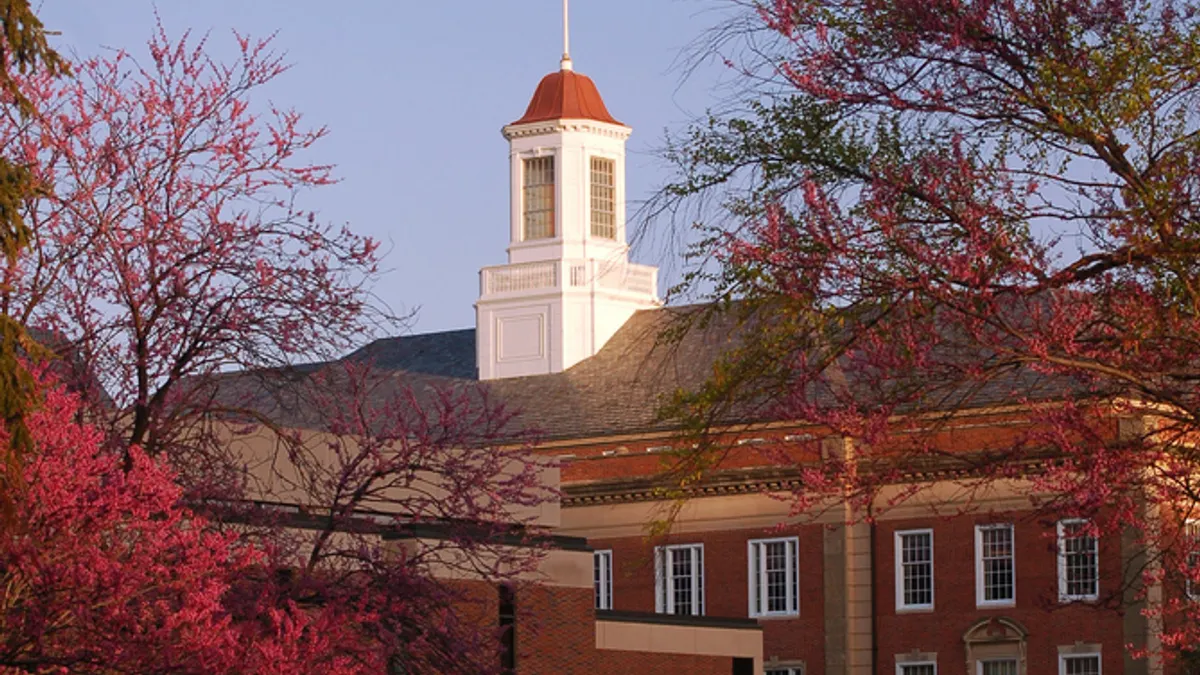Bradley University, a private Illinois nonprofit, rolled out plans this week to potentially eliminate over 20 academic programs and cut 68 faculty positions.
The measures come after Bradley University President Stephen Standifird informed the campus this summer of a $13 million shortfall, which amounts to about 10% of the college's operating budget. At the time, he warned the deficit would persist if the university didn’t make cuts.
The university’s provost and deans, and a faculty review committee, evaluated data and conducted audits to make recommendations about which programs to eliminate, according to a Monday statement.
The announcement unveiled plans for cutting math programs like statistics and actuarial science, as well as programs in the arts, such as printmaking and ceramics. For five programs — economics, French, mathematics, philosophy and physics — the plan calls for continuing classes but dropping majors and concentrations.
Altogether, the cuts would affect about 3.5% of Bradley’s students, though they would still be able to complete their programs. The university recently counted 5,217 students enrolled for fall 2023, down from 5,552 students the year before.
“We've been tracking data very specifically on student trends throughout the years, and that has really been the driving force in us identifying the programs that we think are an important part of our process and those that quite frankly, we think are important part of our legacy, but not part of our process moving forward,” Standifird said in prepared statements Monday.
This week’s announcement also sheds light on the extent of forthcoming layoffs. Bradley expects to cut 47 faculty members. Another 21 faculty jobs will be eliminated through upcoming retirements and by cutting vacant positions. Faculty will be able to complete the academic year, a Bradley spokesperson said via email.
Department chairs overseeing programs slated for elimination have 30 days to respond to the recommendations. Standifird will make final decisions by the end of the calendar year.
What’s causing the cuts?
Ahmad Fakheri, a mechanical engineering professor and president of Bradley’s AAUP chapter, criticized the recommended cuts in an emailed statement Tuesday.
Fakheri said the university faculty committee worked diligently to provide a report with proposals that would have “produced real cuts,” preserved the historic nature of the university and put it on stronger financial footing.
“The President appears to have ignored all of that and instead focused primarily on cutting the academic programs, the sole reason students attend Bradley,” Fakheri said.
A Bradley spokesperson pushed back against that view.
“After a detailed assessment of all recommendations, the president announced the plan he feels best meets the needs and interests of today's students, while creating a [strong] foundation for the university moving forward,” the spokesperson said.
John Nielsen, a history professor and vice president of the university’s AAUP chapter, pointed out that under the faculty handbook, program cuts must be based "solely on educational considerations." Those considerations are to be determined primarily by faculty, the handbook says.
Nielsen echoed Fakheri’s arguments, saying the president’s cuts don’t align with the faculty committee's proposal.
“The faculty is willing to work toward making and putting Bradley on a better financial foundation” Nielsen said. “But we want to do it in a manner that is in accordance with the handbook."
Fakheri also argued that the “urgency and the rationale for the cuts is unclear, and does not appear to be out of any immediate financial or other necessities.” According to Fakheri, the university has a substantial endowment and has always earned more than it spends.
Bradley held a $341 million endowment in fiscal 2022, according to the National Association of College and University Business Officers. And for most of fiscal 2012 through fiscal 2022, the university operated in the black, according to tax documents. However, the university has weighed cuts before in recent years, including during the pandemic, to remedy deficits.
A spokesperson for Bradley pointed to several factors that have caused the recent budget deficit, including lower than expected enrollment, changes in the economic climate and increased operational costs.
Still, Standifird said Monday that the university is making “necessary adjustments” to operations.
“Our endowment is strong, we have very strong programs that are going to continue to operate, and I am very confident about the future success of Bradley University,” Standifird said.


